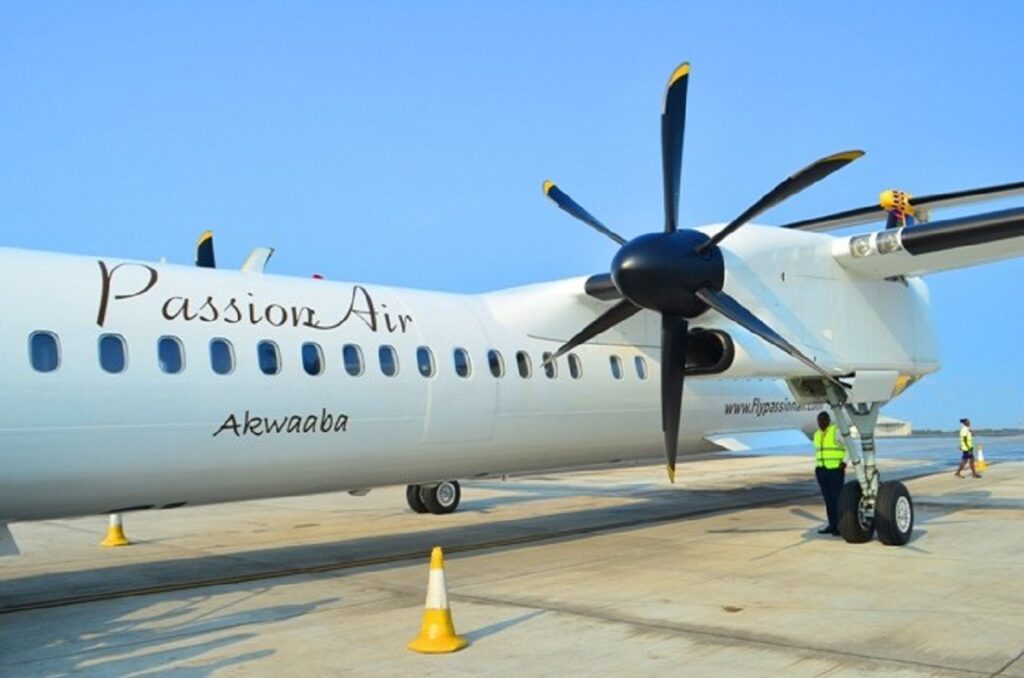In a move that promises relief for domestic travelers, PassionAir has announced a 10% reduction in airfares across all its domestic routes, effective June 17, 2025. The airline attributes this adjustment to the recent strengthening of the Ghanaian cedi (GH₵) against major international currencies, which has reduced operational cost burdens on local airline operators.
The decision comes at a time when the Ghanaian economy is showing signs of recovery, with the local currency appreciating steadily over the past few months. The fare cut makes PassionAir the first domestic carrier to respond positively to calls for local airlines to reflect current economic improvements in their pricing.
The fare reduction appears to be in direct response to remarks made by Transport Minister Joseph Bukari Nikpe, who during a stakeholder breakfast meeting organized by the Ghana Civil Aviation Authority (GCAA) on June 11, encouraged domestic carriers to pass on the benefits of the cedi’s appreciation to passengers.
Minister Nikpe emphasized that the aviation sector should support the broader national effort to make travel affordable, especially as inflation eases and consumer confidence rebounds. He noted that fuel, aircraft maintenance costs, and foreign exchange-driven expenses have all been affected by the stronger currency.
In a post shared on its official Facebook page, PassionAir stated:
“This fare adjustment comes in response to the recent strengthening of the Cedi against major foreign currencies. At PassionAir, we are committed to ensuring our valued customers benefit directly from positive market developments.”
“As the domestic aviation landscape evolves, we remain focused on offering competitive fares that reflect these changes. While maintaining our commitment to the safety and comfort of our passengers, we continue to prioritize making domestic air travel more accessible and affordable for all Ghanaians.”
The 10% reduction applies to all its scheduled domestic routes, which include Accra–Kumasi, Accra–Takoradi, Accra–Tamale, and Accra–Wa. These are some of the busiest routes in the country, often used by business travelers, tourists, and government officials.
This bold move could spark a new pricing trend in Ghana’s domestic aviation market, possibly pushing other local airlines such as Africa World Airlines (AWA) to consider similar fare reductions.
Industry analysts suggest the move could:
Stimulate increased passenger volumes.
Encourage more Ghanaians to opt for air travel over long road journeys.
Boost tourism and business connectivity between major cities.
Promote healthy competition in the domestic airline sector.
The cedi’s gains have come on the back of a successful IMF program, renewed investor confidence, and strict fiscal reforms. Inflation has dropped significantly — from over 50% in early 2023 to 18.4% in May 2025 — making the economy more stable.
The stronger cedi has also helped reduce aviation fuel costs, spare parts import expenses, and general aircraft maintenance fees — many of which are priced in foreign currencies. This has presented an opportunity for airlines to cut costs and potentially improve service delivery.

